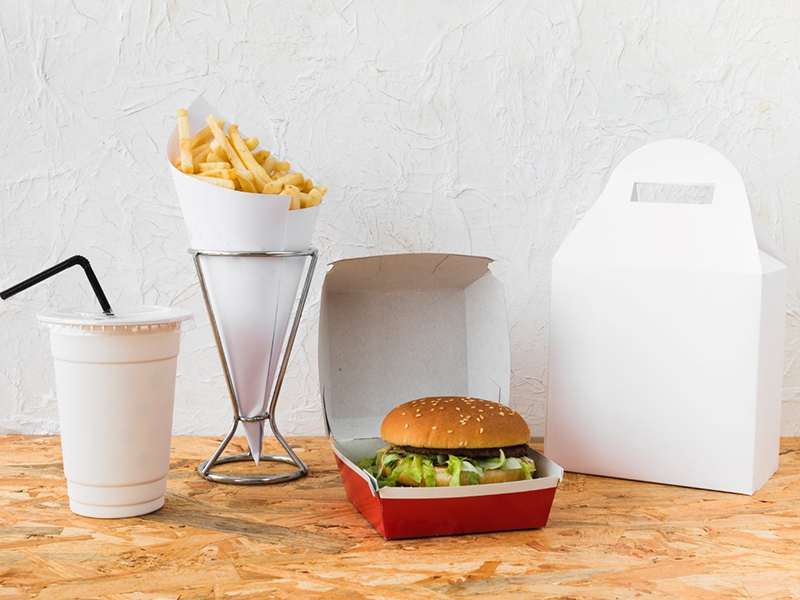Washington state took an important step toward eliminating the use of persistent chemicals known as per- and polyfluoroalkyl substances, or PFAS, in common types of food packaging. A new report to the Washington State Legislature from the Department of Ecology identifies additional alternatives to food packaging that contains toxic chemicals, and starts a two-year clock for manufacturers and retailers to remove PFAS from their food packaging.
The report adds flat serviceware, open-top containers, closed containers, bags and sleeves, and bowls to the list of products for which safer alternatives are available. Paper wraps and liners, food boats, pizza boxes, and plates were included in Ecology’s first report, published February 2021, which found that there are replacements for these products that don’t contain PFAS.
“This report starts a two-year countdown to when PFAS will be banned in these five types of products,” said Katrina Lassiter, manager of Ecology’s Hazardous Waste and Toxics Reduction Program. “The work that’s been done by Ecology, at the Legislature, and by community organizations will go a long way toward making Washington safer for human health and the environment.”
PFAS are a large group of manufactured chemicals that are extremely difficult to remove from the environment, a trait that has earned them the nickname “forever chemicals.” Studies show that many consumer products and product packaging contain PFAS that can leach into food, ultimately exposing people to these toxic chemicals. Many of them can bioaccumulate, or build up in people and the environment. They can easily contaminate groundwater and can be hard to filter out. Since these substances don’t break down naturally, human and animal exposure to PFAS could continue for hundreds or thousands of years.
The next phase
Ecology’s first and second reports looked at food packaging meant to contain food for only a short while. The agency’s upcoming third report will focus on food packaging used for periods of longer-term storage. Work on that project is ongoing throughout 2022. Stakeholders and the public can hear an overview of the second report results and learn how to get involved in the third report at a webinar Monday, June 6, 2022 from 2:30 p.m. to 4:30 p.m. PST.
These reports use an alternatives assessment process, which looks for replacement chemicals or changes in design that can eliminate the need for a toxic chemical. To be deemed an acceptable replacement, an alternative must be shown to be safer than PFAS, work in the product as well or better than PFAS, and be available for purchase to consumers and businesses, among other criteria (see more in Chapter 70A.222 Revised Code of Washington).
To learn more about the alternatives assessment process or to get involved with the next assessment, visit our PFAS in Food Packaging AA website.


